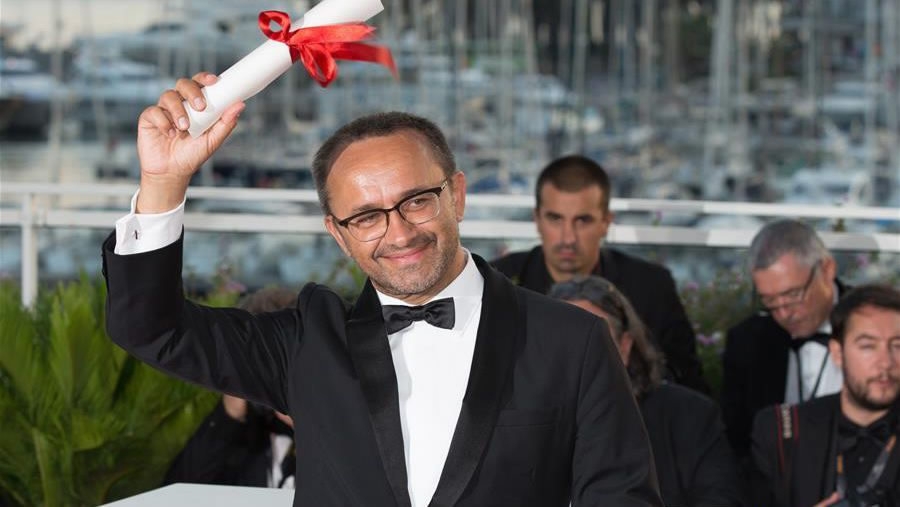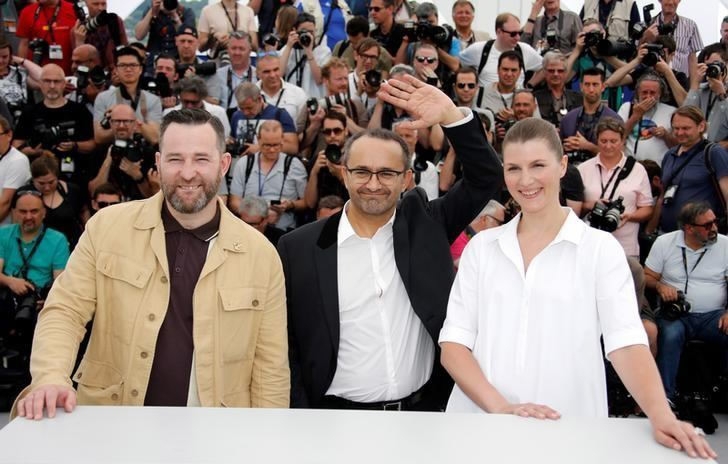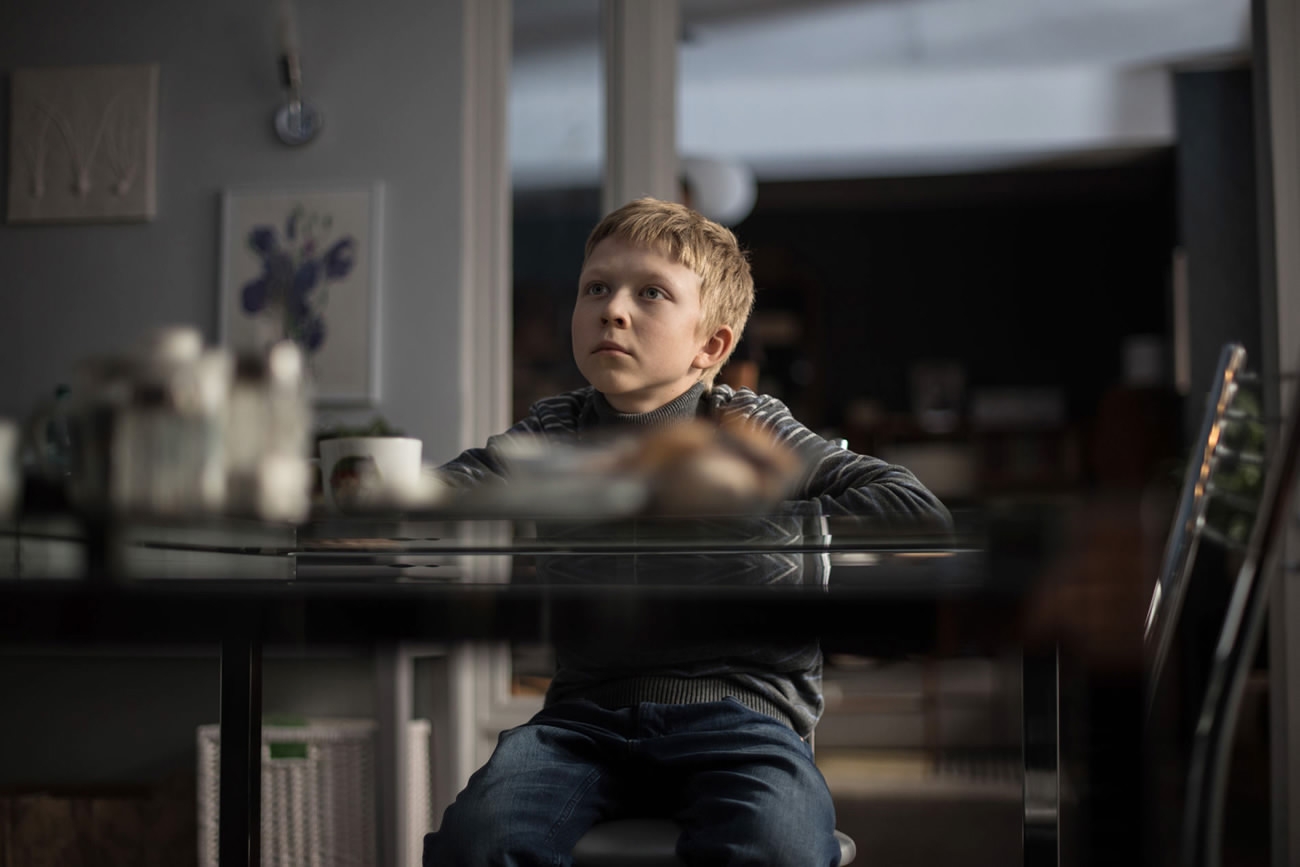
Culture
21:44, 16-Oct-2017
Zvyagintsev's ‘Loveless’ wins BFI London Film Festival
Josh McNally

After winning the Jury Prize at this year’s Cannes Film Festival and the Best International Film at the 2017 Munich International Film Festival, Andrey Zvyagintsev’s latest, “Loveless,” added another award to its already formidable line-up on Sunday when it won Best Film at the BFI London Film Festival, making it the second time the Russian director has taken the festival’s top prize.
Set and filmed in contemporary Moscow, “Loveless” tells the story of Alexey, a 12-year-old boy who goes missing on his way home from school, and how his parents come together to deal with his disappearance while in the midst of a painful divorce. Even though the film is the follow up to Zvyagintsev’s fourth film “Leviathan,” which won a wide range of awards, including Best Screenplay at the 2014 Cannes Film Festival, Best Foreign Language Film at the 72nd Golden Globes and a Best Foreign Film nomination at the 87th Academy Awards – where it lost out to Poland’s nomination, Pawel Pawlikowski’s Ida – “Loveless” received no financing from Russia’s Ministry of Culture.

Director Andrey Zvyagintsev with leads Alexei Rozin (L) and Maryana Spivak (R) at Cannes 2017 /Reuters
Director Andrey Zvyagintsev with leads Alexei Rozin (L) and Maryana Spivak (R) at Cannes 2017 /Reuters
Speaking at a press conference for “Loveless” earlier this year, Alexander Rodnyansky, Zvyagintsev’s longtime producer, said “The Ministry of Culture went to great pains to emphasize how much they disliked 'Leviathan' and their desire to avoid the repetition of this kind of mistake in the future.” While the Ministry of Culture had no problems with Zvyagintsev’s earlier, equally as dour movies, “Leviathan’s” focus on corruption in Russian society combined with its international success made the government body clamp down on films that “defile” Russia.
Zvyagintsev denies that any of his films actually do this. Speaking to the LA Times at the Cannes premiere of “Loveless,” the director said that the film is about modern-day police and how “[they] don’t care about people. They act as a wall between people and power, and they have turned to power.” He also denies that his film is overtly political, stating: “I’m not really a political person. I threw out my television. I don’t pay attention to the news. I couldn’t tell you anything about President [Trump] or any of that.”
In all art forms, Anglophone works are deemed to speak of universal themes but anything international is always thought to be about the country of origin before all else, so denying that his films are explicitly critiques of Russia – especially in a time period when that would be considered a major selling point in most markets – is a bold stance to take. However, were his works so singular, Zvyagintsev wouldn’t be the most critically acclaimed Russian director since Andrei Tarkovsky – another director whose intensely personal works were, and often still are, regularly considered to be veiled critiques of Soviet society and little else.

Matvey Novikov as Alexey, the boy who goes missing in "Loveless." /kinopoisk.ru
Matvey Novikov as Alexey, the boy who goes missing in "Loveless." /kinopoisk.ru
“Although the film concentrated on the story of one family in Russia, it felt like a universal tragedy; one that we recognized as one of the world’s great sadnesses,” said the panel of judges when describing “Loveless.”
Also at the event, British director Paul Greengrass was awarded this year’s BFI Fellowship. Best known for his work on the second and third entries in the Bourne franchise and "Captain Phillips," a fact-based drama starring Tom Hanks that was nominated for six Academy Awards, he spoke about the current Harvey Weinstein scandal and the need for diversity in the industry during his acceptance speech: “In all ways – gender, ethnicity – we need to do better.”
Other winners on the night were "The Wound," which won the Sutherland Award for Best First Feature, "Kingdom of Us" which won the Grierson Award for Best Documentary and "The Rabbit Hunt" which won the award for Best Short Film, and screened were new films from Joachim Trier, Noah Baumbach, Martin McDonagh, Alexander Payne and many others.

SITEMAP
Copyright © 2018 CGTN. Beijing ICP prepared NO.16065310-3
Copyright © 2018 CGTN. Beijing ICP prepared NO.16065310-3